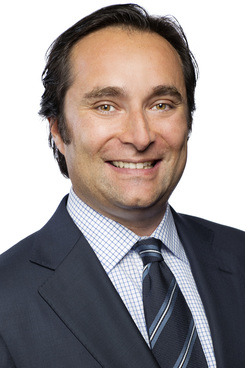Darren Laverne

January 29, 2020 | New York Law Journal
Agency: A New Frontier for FCPA JurisdictionThe 'Hoskins' case highlighted the manner by which the DOJ (and the SEC, which has civil enforcement jurisdiction under the FCPA) can harness the common-law doctrine of agency to expand the reach of the statute.
By Darren LaVerne, Michael Martinez and Eric Rosoff
10 minute read

March 26, 2019 | New York Law Journal
It's Time to Amend the Jencks ActThe claim that early production of witness statements threatens to engender perjury and obstruction is based on the notion—inimical to our system of justice—that every person charged with a crime is guilty and likely to flout the law in order to escape punishment. A statute that rests on this presumption is, in 2019, long overdue for reform.
By Darren LaVerne and Jessica Weigel
8 minute read

July 28, 2016 | New York Law Journal
'Microsoft,' 'RJR Nabisco' and Extraterritorial Reach of U.S. LawDarren LaVerne discusses two recent decisions that highlight the extent to which the courts continue to grapple with the question of when to apply a U.S. statute beyond the territorial boundaries of the United States.
By Darren LaVerne
9 minute read

July 24, 2006 | National Law Journal
Private lies may lead to prosecutionEven the most na�ve of witnesses typically understands that lying to a prosecutor, FBI agent or regulator is a crime. What even sophisticated witnesses don't tend to know, however, is that lying to private attorneys can also lead to criminal prosecution.
By Timothy P. Harkness and Darren LaVerne/Special to The National Law Journal
11 minute read

July 27, 2006 | Law.com
Lying to In-House Counsel May Lead to ProsecutionEven the most naive of witnesses typically understands that lying to a prosecutor, FBI agent or regulator is a crime. What even sophisticated witnesses don't tend to know, however, is that false statements to private attorneys can also lead to criminal prosecution. Recent developments confirm that the U.S. Justice Department views the obstruction of justice laws as including conduct that many had considered to be without criminal consequence: lying to either in-house or outside counsel.
By Timothy P. Harkness and Darren LaVerne
11 minute read
Trending Stories
- 1Prior Inconsistent Statements and Medical Malpractice Defense
- 2Public Interest Calendar of Events
- 3Why Law Firms Should Focus on IA for Improved Gen AI
- 4Post-Pandemic Increase in Live Events Prompts Need for Premise Liability Action
- 5Companies' Dirty Little Secret: Those Privacy Opt-Out Requests Usually Aren't Honored
More from ALM
- Legal Speak: GCC East Comes to New York 1 minute read
- Legal Speak: A Convicted Felon is Coming to the White House. What Happens Now? 1 minute read
- Leveraging Partner Training To Recruit and Retain 1 minute read



